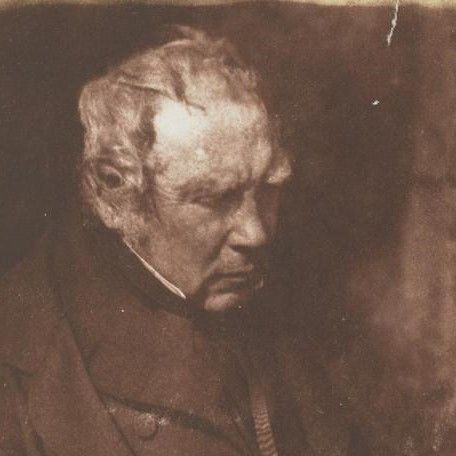Stumped by the Gospel Question
Transgenderism, homosexuality, abortion, pornography, sexual promiscuity, marriage, drug addiction, euthanasia, casteism and every other significant cultural phenomenon can only be understood rightly if we build it on the foundation of the gospel. All of these are gospel issues.

This is a guest article by Larissa Clitus
Ask a typical young church goer “what is the gospel?”, and you are likely to receive an answer with a little bit of hesitation. Now, dive a little deeper and ask them “what is the power of the gospel?”. I’m certain you’re bound to receive a longer pause, with perhaps an answer at the end.
There’s an apparent disconnect, that seems to be growing, between the understanding of what the gospel is and its life-altering consequences, among the youth. Having been in the Christian youth setting within university and church, I’ve come across many who profess to be Christian but lack the foundational understanding of the faith. What’s even more astonishing is that they’ve been church-goers for most of their life!
Unfortunately this is telling of the condition of many churches today. We know the gospel because we’ve probably rehearsed it a number of times at Sunday School - usually demonstrated in about five steps. But the hesitation that comes in conveying the power of the gospel is a result of the lack of experience stemming from the lack of teaching. It is not to say that the gospel is not being preached from the pulpit. But if there is no sustained effort in expounding deep into Scripture with the intention of making disciples, the sermon will remain securely stored in the pew where we sit as per routine every Sunday.
I will never forget the instance during my undergrad when my Christian friend remarked that she learned more during our weekly Bible study hosted within the Christian Students Association on campus than she did at church. To say that I was taken aback would be an understatement.
But why does this matter? What is the power of the gospel after all?
The Gospel
The Bible is very clear in letting us know that all human beings have "..sinned and fallen short of the glory of God" (Romans 3:23). Sin keeps us apart from God because He is Holy and Just. But at the same time God is also Loving and Merciful. Therefore, it is His desire that we would be reconciled and dwell with Him forever. The only solution then, that would deal not only with our sin but make it possible for us to be with God, is the death of a blameless human who would carry the sins of the entire world upon him. John 3:16 says that God made this possible by giving us His only Son, who would become that ultimate sacrifice for the world, thereby securing eternal life for all who believe in Jesus Christ.
We receive salvation by recognizing first and foremost that we are sinners who have sinned against God, then turn away from our sin by repenting and believing that Jesus died and rose again for our sin, because of which we are reconciled to God. But the gospel doesn't end there. We now live our lives unto Christ. We become vessels that carry God's glory to all the Earth. This is where we begin to understand the power of the gospel.
The Power of the Gospel
In Romans 1:16 the apostle Paul says that the gospel is the “..power of God to Salvation for everyone who believes..” The gospel is not a one time transaction. Salvation has a beginning, but no ending. It is a continuing process, what the Bible calls as Sanctification, until we rise with Jesus in glory. In the simplest of understanding, it is a journey of becoming more and more like Christ, as we lose more and more of our sin nature.
Sanctification is not a choice, it is the natural progression one goes through after being saved. Much like how after adolescence comes adulthood. It is the maturing of faith and growing deeper in intimacy with God.
This is not a small thing.
The truth of the matter is that while the gospel primarily caters to our spiritual state, which is to be reconciled to God (Colossians 1:20), it also is meant to be the basis through which we organize our everyday lives.
Anything that has to do with identity or life, is a gospel issue.
The Gospel and Culture
Our world is experiencing intense turmoil, where culture has gone for a toss. This is simply because all of creation was subjected to corruption and decay because of the fall (Genesis 3). Nothing in this world is untouched by that act of disobedience. Perversion is the order of the day!
Therefore, culture, the code through which a society functions, is being redefined. From love to sin, from God to self we are told that we have the ability to make our own meaning and attribute it to the ‘reality’ around us. This stands in direct contradiction to the Bible. Jesus says that He is the Truth (John 14:6) which means that all answers lie in Christ and anything that is true does not exist apart from Him.
Transgenderism, homosexuality, abortion, pornography, sexual promiscuity, marriage, drug addiction, euthanasia, casteism and every other significant cultural phenomenon can only be understood rightly if we build it on the foundation of the gospel. All of these are gospel issues. Anything that has to do with identity or life, is a gospel issue. Why? Because both of these elements are decided by God. He gave us identity by making us in His image, and as either male or female. He breathed His life into us (Genesis 1). Any deviation from God’s definition is a perversion, and only the gospel can restore it to its rightful meaning.
What is the power of the gospel? It is the transformation of lives through Jesus Christ. If our lives are not being transformed, is the gospel even being preached?
Larissa Clitus resides in Bangalore and is currently pursuing her Masters. She is passionate about apologetics and the pro-life movement. Her areas of interest include society and culture, international relations, and theology.





Comments ()